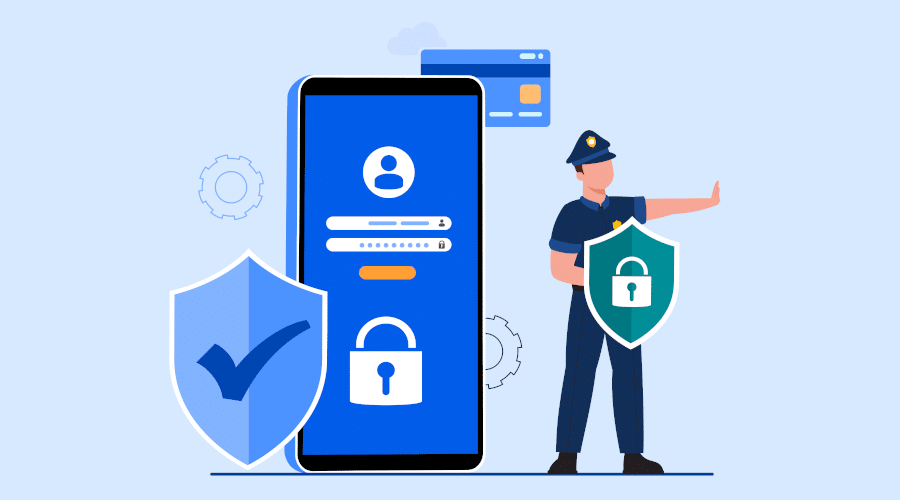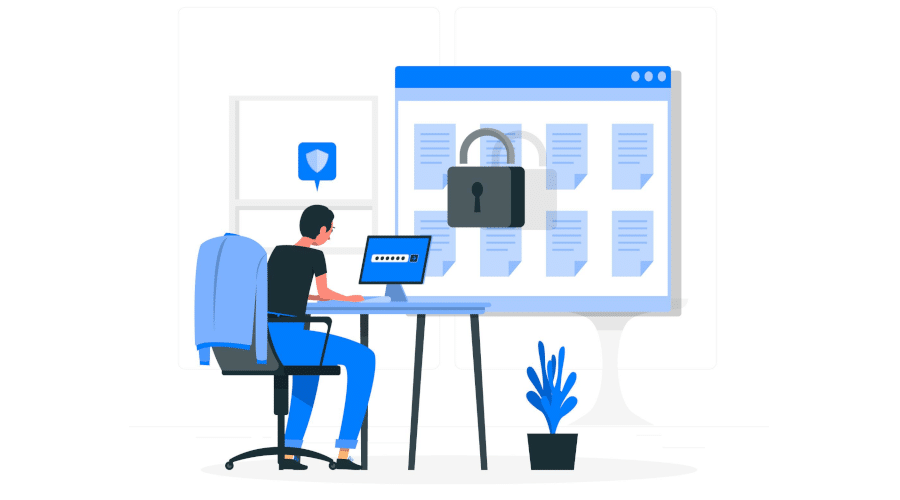The Data Protection Officer (DPO) is an expert responsible for preventing data leaks and cyber attacks, and ensuring compliance with regulations such as the RGPD. Find out why and how to train for this job!
In the age of digitisation and ubiquitous connectivity, protecting personal data has become a top priority for businesses. This is particularly the case in the European Union, where the GDPR adopted in 2018 imposes strict rules.
In this context, one profession occupies a key role in guaranteeing confidentiality, data security and respect for privacy: the Data Protection Officer, also known as DPO.
What is a DPO and what is his role?
The Data Protection Officer is a professional responsible for overseeing and ensuring the compliance of an organisation’s personal data processing practices.
Although this role came into being with the entry into force of the General Data Protection Regulation (GDPR) in Europe, its influence extends well beyond the old continent.
It acts as a strategic and operational advisor, guiding businesses in implementing practices that comply with the regulations.
His main responsibilities include overseeing data collection, processing and storage processes, working with internal and external stakeholders, and managing interactions with supervisory authorities such as the CNIL in France.
As such, it acts as a bridge between regulation and day-to-day operations, ensuring that the rights and interests of individuals are protected while facilitating the achievement of business objectives.
The importance of this role lies in its ability to ensure that companies operate in compliance with data protection standards. This not only helps to avoid heavy financial penalties, but also preserves the company’s reputation.
By promoting compliance with regulations such as the GDPR, the DPO reduces the risk of breaches that could result from poor data management.
What’s more, his or her presence within an organisation enhances the trust of customers, business partners and the general public.
Individuals are increasingly aware of the importance of their personal data, and knowing that an expert is dedicated to protecting it reassures them of the company’s commitment to protecting privacy.
This increased trust can lead to stronger customer relationships and a better corporate image, giving the company a competitive edge.
Much more than a mere guarantor of regulatory compliance, the DPO is therefore a key player in guaranteeing data protection, maintaining stakeholder confidence and preparing companies to operate in a world where data management is of paramount importance.

Data protection: a rapidly changing environment
In recent years, privacy breaches have exploded and data breaches have become commonplace, with high-profile companies affected by major incidents exposing millions of sensitive personal data.
These events have serious repercussions. According to IBM’s Cost of a Data Breach 2023 report, the average cost of a data breach to a business is now $4.45 million. Never before has it been so high.
Whether it’s the result of employee error, a cyber attack or social engineering, a data breach is never trivial, and recent disasters have highlighted the vulnerability of data in today’s digital landscape.
Given the growing complexity of data processing technologies and practices, specialist expertise has become essential to protect data. Today’s challenges are multidimensional: legal, technical and ethical.
Professionals need to be able to navigate in a constantly changing environment, where regulations and threats are evolving at breakneck speed.
That’s why companies are actively seeking to strengthen their teams with highly skilled specialists capable of understanding and managing complex challenges…
Why become a Data Protection Officer?
Whether you’re a student or a professional changing careers, working as a Data Protection Officer has many advantages: first and foremost, it’s an opportunity to play a key role in safeguarding people’s fundamental rights to privacy and data protection.
By choosing this profession, your work contributes directly to ensuring that personal information is handled ethically and in compliance with regulations, reducing the risk of abuse or violation. You will therefore become a protector of fundamental rights.
More generally, your work will have a positive impact on society by helping to shape a digital environment that is safer and more respectful of privacy.
Your commitment will strengthen people’s trust in the way their data is managed, which is essential for the continued development of the digital society.
What’s more, this role is increasingly recognised and sought after by businesses of all sizes and in all sectors. As a DPO, you can benefit from a wide range of job opportunities and promising career prospects. There are currently over a thousand job offers for this profession on LinkedIn.
As companies strive to comply with regulations and strengthen their stance on data protection, they are prepared to offer attractive salaries to surround themselves with the best experts. In France, the average salary for a DPO is around €50,000, according to Glassdoor and Talent.com.
If you like intellectual challenges, this is also an excellent career choice. This job requires an in-depth understanding of complex and constantly changing regulations, as well as legal skills. There’s never a dull moment!
In addition to regulatory compliance, the Data Protection Officer promotes responsible innovation. By working alongside technical and operational teams, you can help develop innovative solutions while safeguarding individual privacy.
This profession is therefore a unique combination of technology, law and ethics, and makes a positive contribution to the digital society. By choosing to practise, you will become a key player in the defence of individual rights and a guardian of digital trust.

Why take DPO training?
While the job of Data Protection Officer is very attractive, it is also a demanding role that requires solid expertise and a wide range of skills.
Data protection regulations are constantly evolving to meet the challenges of the digital world, which is itself changing very rapidly.
Whether it’s the GDPR or similar laws in other parts of the world, they need to be mastered at the fingertips of the DPO to be able to comply with them.undergoing training helps to gain an in-depth understanding of these rules and to keep up to date with changes that can have an impact on day-to-day operations.
In addition, this profession requires a unique combination of technical and legal knowledge. The delegate must be able to understand the technical aspects of data processing, while interpreting and applying the often complex laws.
Again, dedicated training provides these essential skills. This includes the ability to assess security risks, implement protection strategies and collaborate with teams from different departments.
Finally, the best training courses enable you to obtain recognised certification and strengthen your professional credibility in the field of data protection.
Many companies attach great importance to this certified expertise when recruiting candidates for key roles such as DPO.
Certification also testifies to a professional’s commitment, and can open up career opportunities and increase his or her value on the job market.
Training is therefore a wise step for anyone aspiring to become a Data Protection Officer and effectively safeguard people’s privacy!
Conclusion: Data Protection Officer training, a real springboard to an exciting job
Both priceless and vulnerable, personal data is one of the most valuable resources in today’s business world. The role of the Data Protection Officer is therefore the cornerstone of the modern organisation, the guardian of this asset that must be protected from a thousand dangers.
If you want to train as a DPO, DataScientest is the place to be. Our courses can be completed remotely via the Internet, so you can acquire all the skills you need to become a Data Science professional!
You’ll not only learn to master the various data processing tools used by analysts and scientists, but also become an expert in the GDPR and all the ethical practices associated with data.
Our state-recognised organisation is eligible for CPF funding, and our courses will earn you a diploma issued by MINES Paris Executive Education as well as certification from our cloud partners AWS and Azure. Discover DataScientest!











